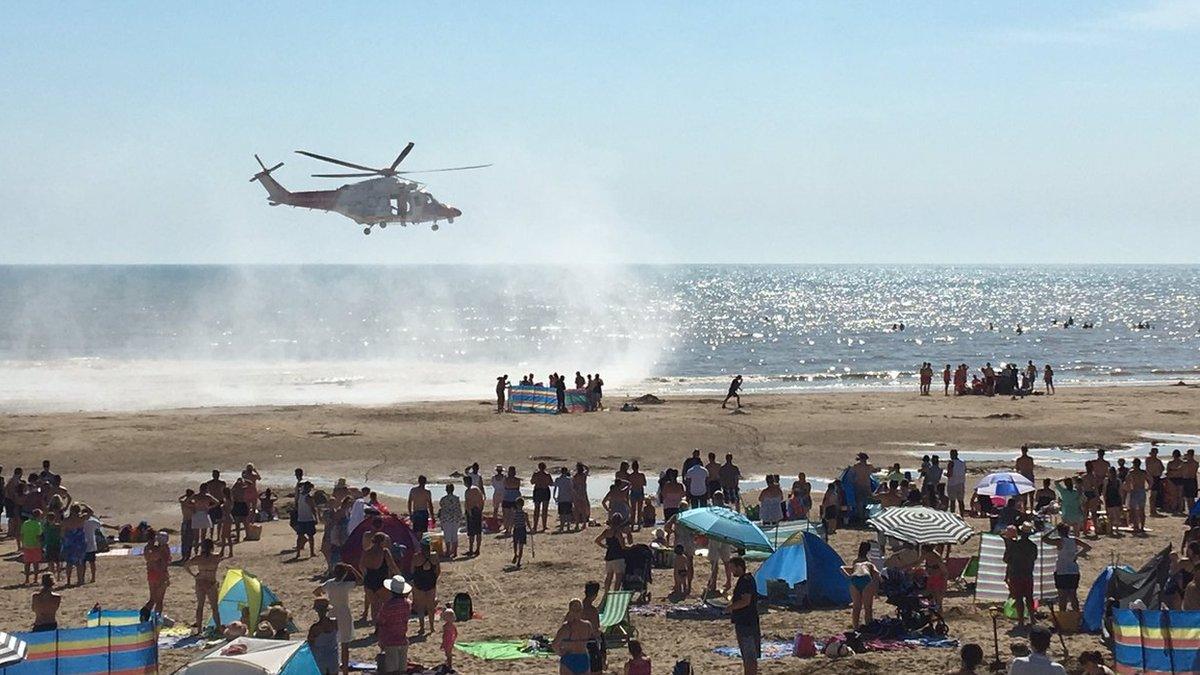Lifeguard patrols return to Camber Sands
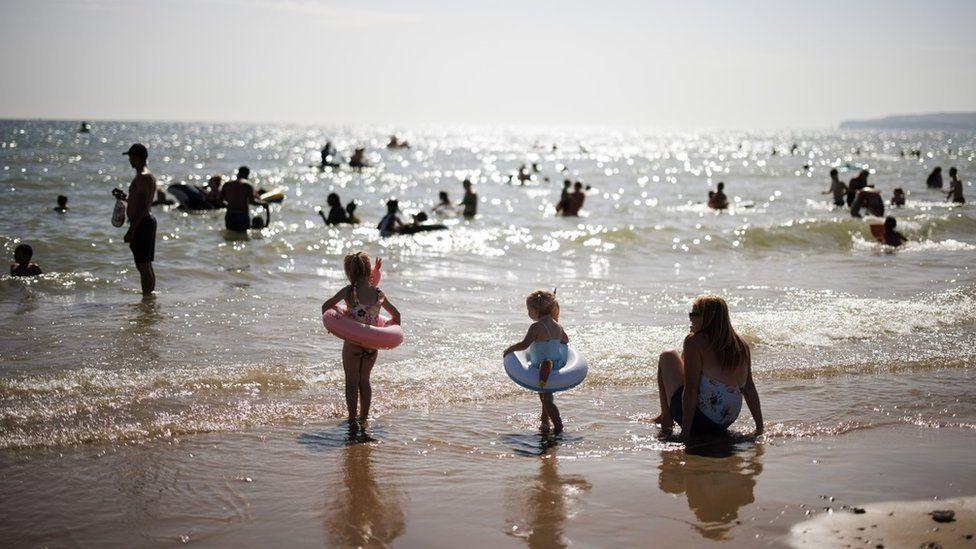
Visitors have been urged to follow beach safety advice as lifeguards return to Camber
- Published
Lifeguards have returned to Camber Sands this Easter as the service steps up for the summer.
The RNLI said patrols would be on the Sussex beach to cover weekends and bank holidays until 19 May and then operate seven days a week until 29 September.
Rother council said RNLI lifeguards worked alongside the authority's own beach patrol and coastal officers to provide "a fantastic service".
Council leader Doug Oliver said Camber could attract thousands of people on a sunny day.
RNLI lifeguard supervisor Hugh Richardson said: "An RNLI lifeguard’s job is mostly preventative.
"The aim is for them to educate beachgoers on the importance of beach safety and help them identify potential dangers to reduce the risk of someone becoming in distress off the beaches."
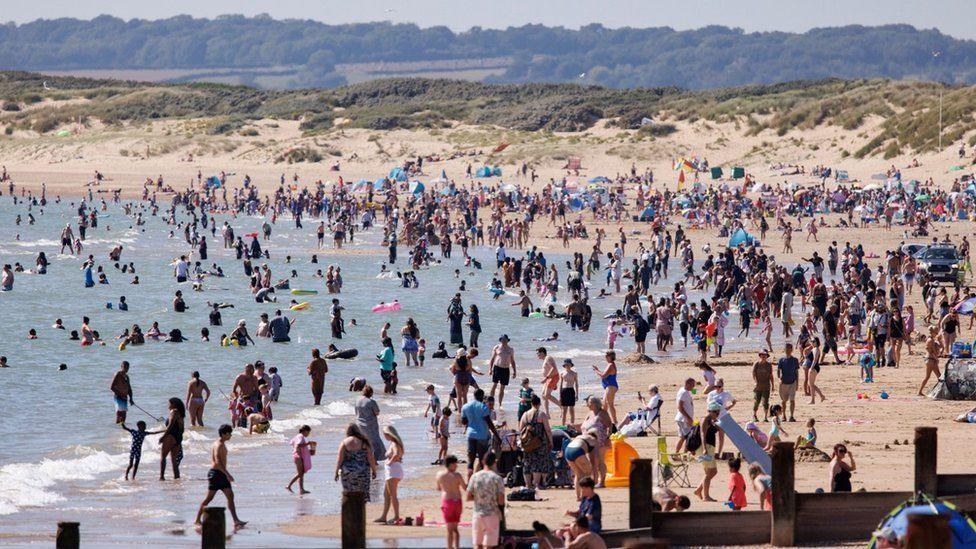
The sandy coast can attract thousands of people in sunny weather
A Camber lifeguard service was brought in to provide cover from Whitsun to the end of the summer holidays after seven people drowned in 2016.
The sandy beach can attract up to 25,000 people in the summer and in previous years hot weather has seen traffic queuing for miles to get there and warnings of congestion on the beach itself.
A controversial flat rate parking fee trial that aimed to reduce congestion was scrapped last year.
The popular stretch of sandy coast, which has fast tides and sand bars, is known for its picturesque dunes.
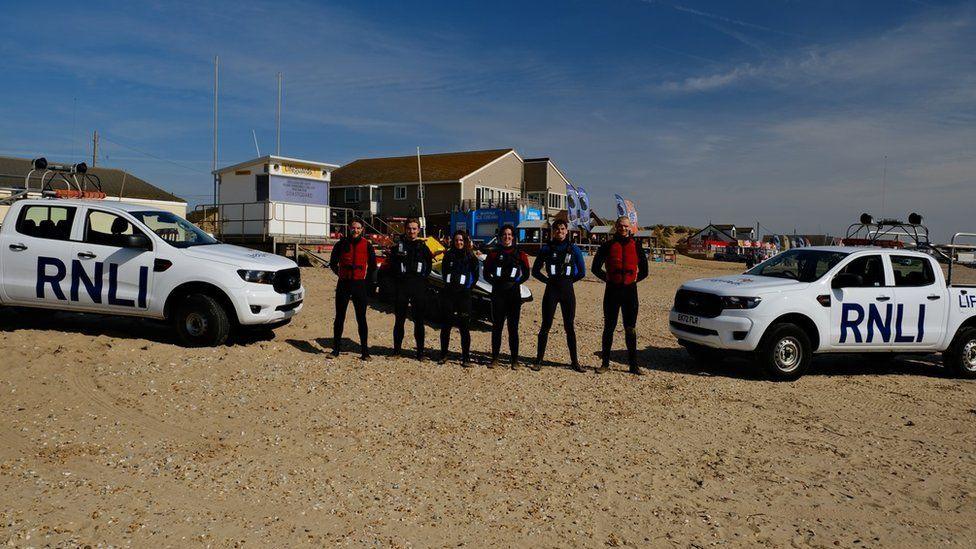
Lifeguards returned to Camber Sands on Good Friday
Last year, across the whole of Rother and Hastings, lifeguards responded to 234 incidents, helped 250 people and saved five lives, the RNLI said.
The charity has urged people to follow its beach safety advice including to use lifeguarded beaches, swim between red and yellow flags, check weather and tides and read local signs, and be aware of cold water shock.
Those taking part in activities like paddle boarding or kayaking, or open water swimming, should wear wetsuits, buoyancy aids or lifejackets and also have a means of calling for help.
People are also advised to tell someone what they are doing and where and when they will return, and if they get into trouble or fall in water unexpectedly, "float to live, external".
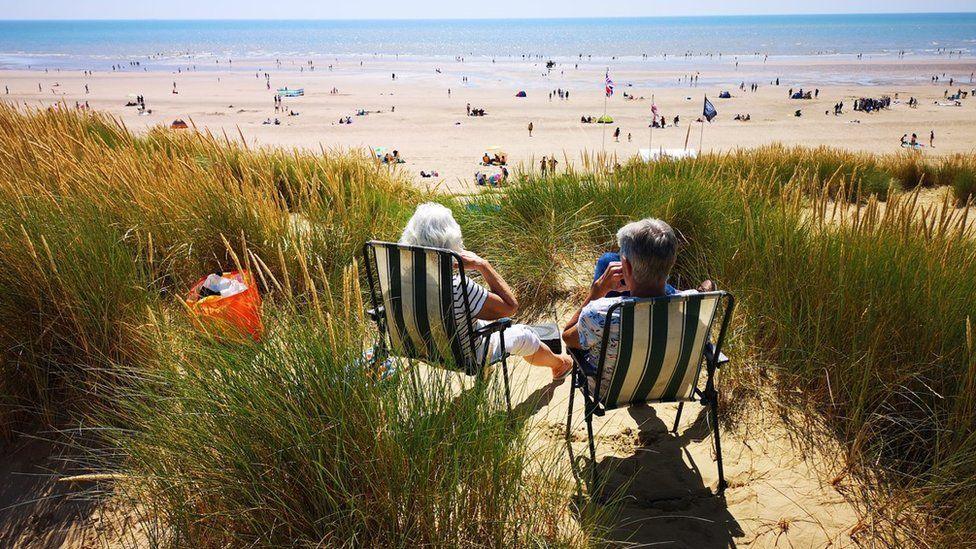
The popular stretch of sandy coast is known for its picturesque dunes
Follow BBC Sussex on Facebook, external, on X, external, and on Instagram, external. Send your story ideas to southeasttoday@bbc.co.uk, external or WhatsApp us on 08081 002250.
Related stories
- Published17 July 2022
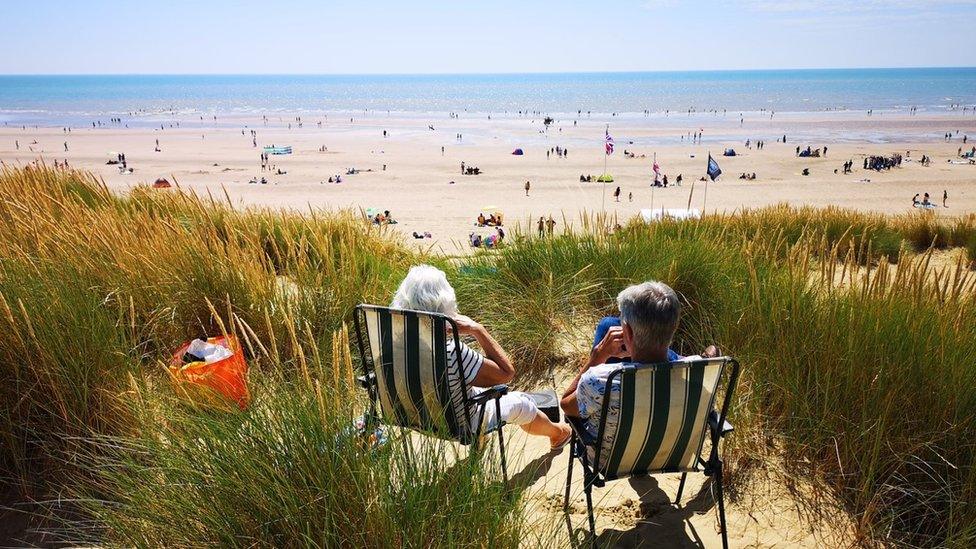
- Published8 August 2018
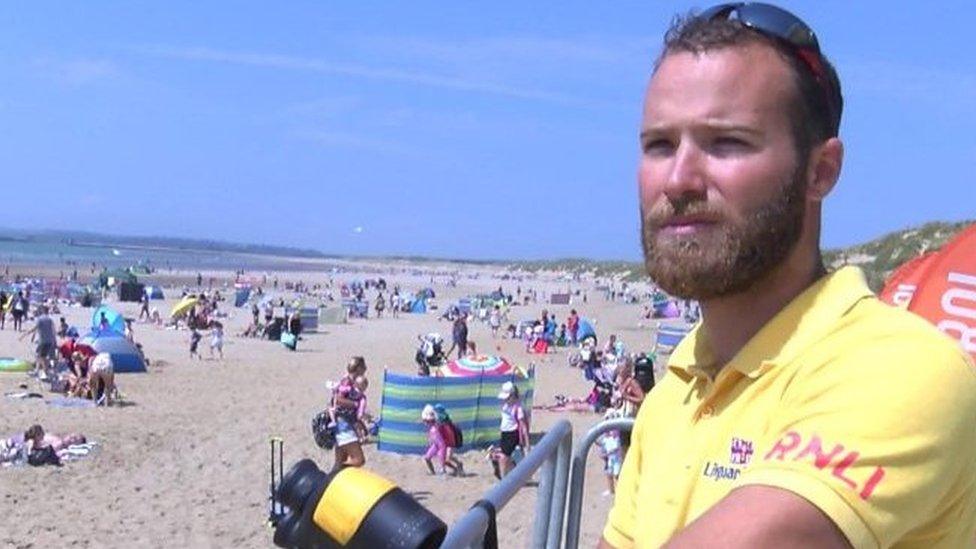
- Published30 June 2017

- Published31 January 2017
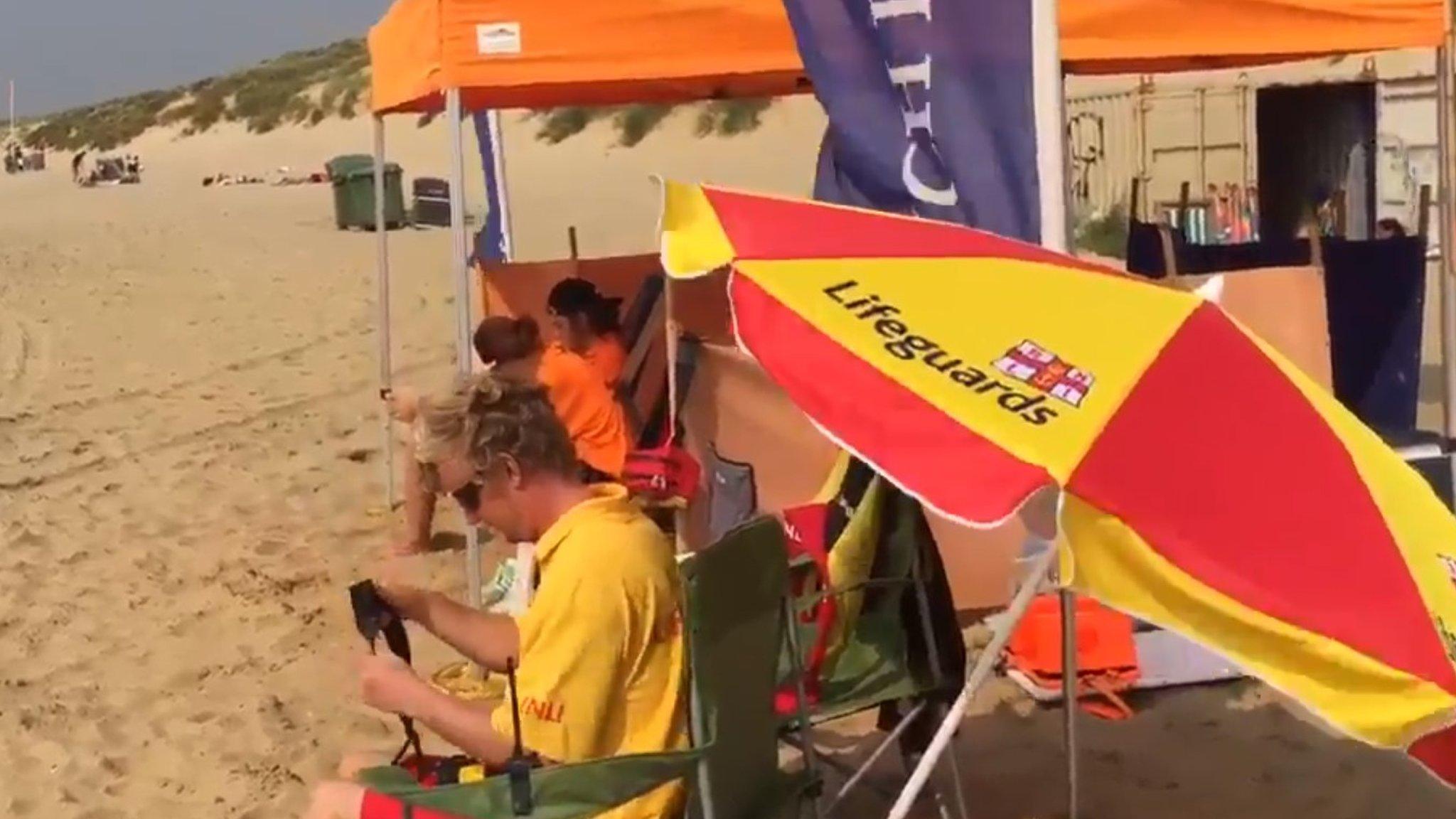
- Published25 August 2016
